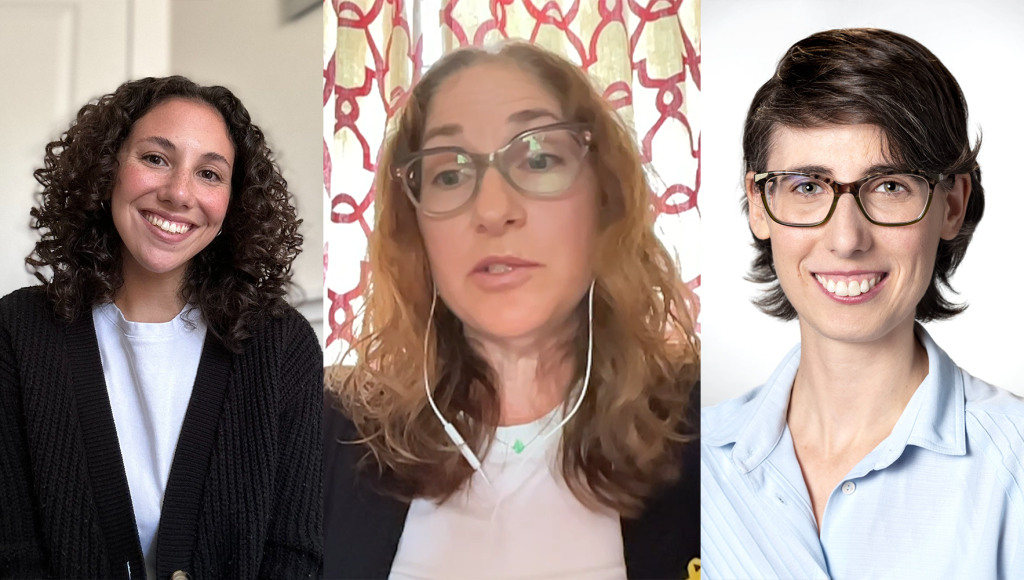Education
Jewish Students Face Rising Antisemitism as New School Year Begins

As the new academic year begins across Canadian campuses, Jewish students are confronting a troubling environment marked by rising antisemitism and hostility. Reports indicate that incidents of verbal abuse and anti-Israel sentiment have escalated, raising concerns about the safety and well-being of Jewish students in these educational settings.
At Concordia University in Montreal, the official student handbook appears to endorse anti-Israel protests, while at Toronto Metropolitan University, masked protesters confronted the provost during an orientation event, demanding she denounce what they described as genocide in Gaza. These confrontations are part of a broader pattern that has been confirmed by a recent study from the Aristotle Foundation, a Calgary-based conservative think tank.
The study, released on September 3, 2025, revealed that Jewish university students are “four times more likely” than their peers to feel reluctant to share their views on religion during class discussions due to fear of backlash. Alarmingly, 15 percent of those surveyed reported experiencing daily abuse on campus for their Jewish identity, while 84 percent indicated they faced antisemitism at least once a year.
In response to this rising tide of hostility, some Jewish students and faculty are taking steps to push back against the overwhelming anti-Israel atmosphere prevalent on campuses. On a recent episode of The CJN’s North Star podcast, host Ellin Bessner engaged with guests including Daphne Wornovitzky, a recent graduate from the University of Calgary, and social worker Melanie Trossman, who shared their experiences navigating this challenging landscape.
Wornovitzky, who completed her master’s degree in social work, recalled a particularly distressing incident at the University of Calgary when former Israeli government spokesman Eylon Levy was scheduled to speak. Protesters blocked access to the venue, forcing Jewish students to evacuate for their safety. This incident, along with a hostile classroom environment, prompted Wornovitzky to take action, advocating for a more inclusive atmosphere within her social work department.
She highlighted the importance of adhering to the ethical standards of social work, which emphasize acceptance of diverse perspectives. Wornovitzky successfully called attention to the intimidating culture she faced, urging her department to create a safer space for all students, regardless of their political beliefs.
Trossman, who has over three decades of experience in social work, noted that issues of antisemitism have become more pronounced since the escalation of the Israel-Palestine conflict. She shared her own experiences of subtle discrimination within her workplace, emphasizing the need for greater awareness and inclusion of Jewish identity in diversity initiatives.
The conversation also addressed the ongoing challenges faced by Jewish students at various institutions. Gdalit Neuman, a PhD candidate at York University, discussed the pervasive anti-Israel narrative she encounters both on campus and at academic conferences. Neuman expressed concerns about how antisemitism has become normalized within certain academic circles, complicating the dialogue around Israel and its policies.
Despite the challenges, Wornovitzky’s advocacy offers a glimmer of hope for Jewish students navigating this complex environment. Her approach emphasizes constructive dialogue and the importance of fostering understanding among peers, a sentiment echoed by Trossman and Neuman.
As the academic year unfolds, the experiences of Jewish students may serve as a litmus test for the broader climate of tolerance and respect on Canadian campuses. Advocates like Wornovitzky are paving the way for change, demonstrating that while the journey may be fraught with obstacles, the pursuit of a more inclusive and respectful academic environment is both necessary and possible.
The findings from the Aristotle Foundation and the personal accounts of students highlight an urgent need for universities to address antisemitism and create supportive spaces for all students. As they move forward, the hope is that collaborative efforts can foster dialogue, understanding, and ultimately, a safer environment for Jewish students on campuses across Canada.
-

 Science3 months ago
Science3 months agoToyoake City Proposes Daily Two-Hour Smartphone Use Limit
-

 Top Stories3 months ago
Top Stories3 months agoPedestrian Fatally Injured in Esquimalt Collision on August 14
-

 Health3 months ago
Health3 months agoB.C. Review Reveals Urgent Need for Rare-Disease Drug Reforms
-

 Technology3 months ago
Technology3 months agoDark Adventure Game “Bye Sweet Carole” Set for October Release
-

 World3 months ago
World3 months agoJimmy Lai’s Defense Challenges Charges Under National Security Law
-

 Lifestyle3 months ago
Lifestyle3 months agoVictoria’s Pop-Up Shop Shines Light on B.C.’s Wolf Cull
-

 Technology3 months ago
Technology3 months agoKonami Revives Iconic Metal Gear Solid Delta Ahead of Release
-

 Technology3 months ago
Technology3 months agoApple Expands Self-Service Repair Program to Canada
-

 Technology3 months ago
Technology3 months agoSnapmaker U1 Color 3D Printer Redefines Speed and Sustainability
-

 Technology3 months ago
Technology3 months agoAION Folding Knife: Redefining EDC Design with Premium Materials
-

 Business3 months ago
Business3 months agoGordon Murray Automotive Unveils S1 LM and Le Mans GTR at Monterey
-

 Technology3 months ago
Technology3 months agoSolve Today’s Wordle Challenge: Hints and Answer for August 19









